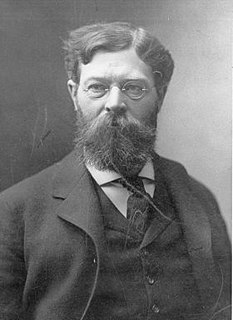A Quote by William DeWitt Hyde
Unsatisfied desire is the characteristic feature of human life. That is the common fact out of which both pessimism and optimism are constructed. Dwell on the impossibility of ever getting a state of complete and permanent satisfaction with what you have, and you become a pessimist. Dwell on the opportunity for endless growth and conquest which this same fact makes possible, and you become an optimist.
Related Quotes
There is one great fact, characteristic of this our nineteenth century, a fact which no party dares deny. On the one hand, there have started into life industrial and scientific forces which no epoch of former human history had ever suspected. On the other hand, there exist symptoms of decay, far surpassing the horrors recorded of the latter times of the Roman empire. In our days everything seems pregnant with its contrary.
Every optimist moves along with progress and hastens it, while every pessimist would keep the worlds at a standstill. The consequence of pessimism in the life of a nation is the same as in the life of the individual. Pessimism kills the instinct that urges men to struggle against poverty, ignorance and crime, and dries up all the fountains of joy in the world.
The psyche is the inward experience of the human body, which is essentially the same in all human beings, with the same organs, the same instincts, the same impulses, the same conflicts, the same fears. Out of this common ground have come what Jung has called the archetypes, which are the common ideas of myths.


































